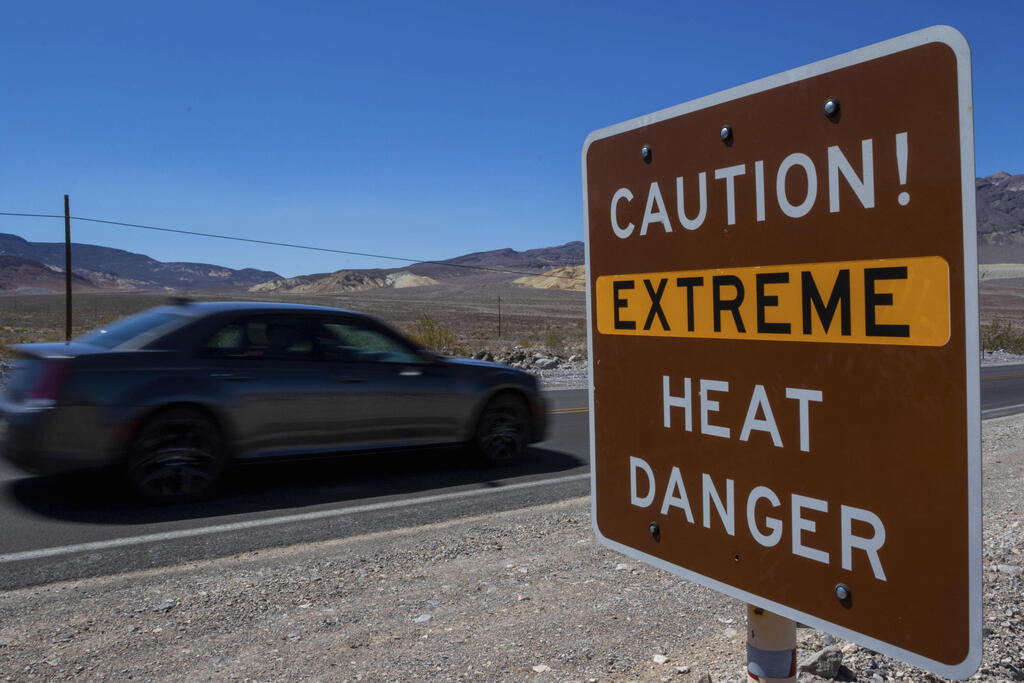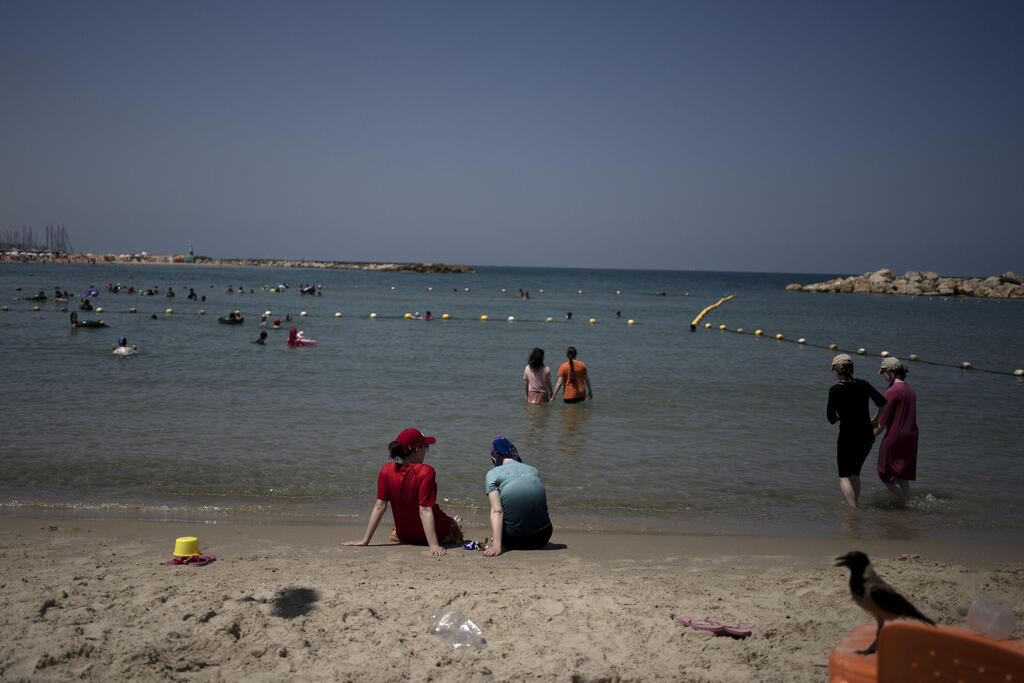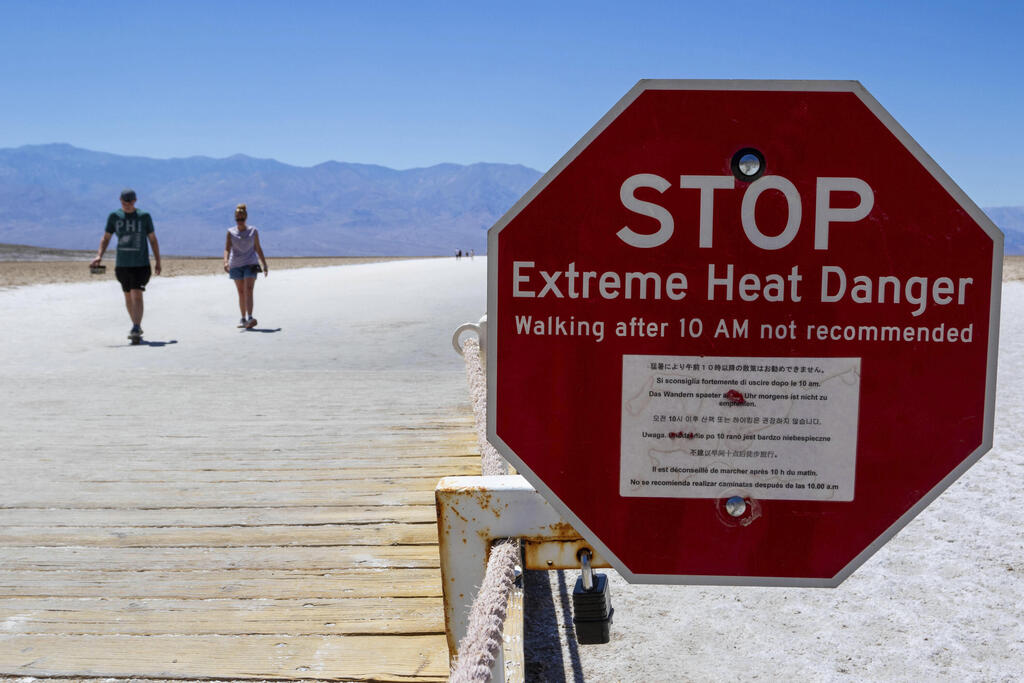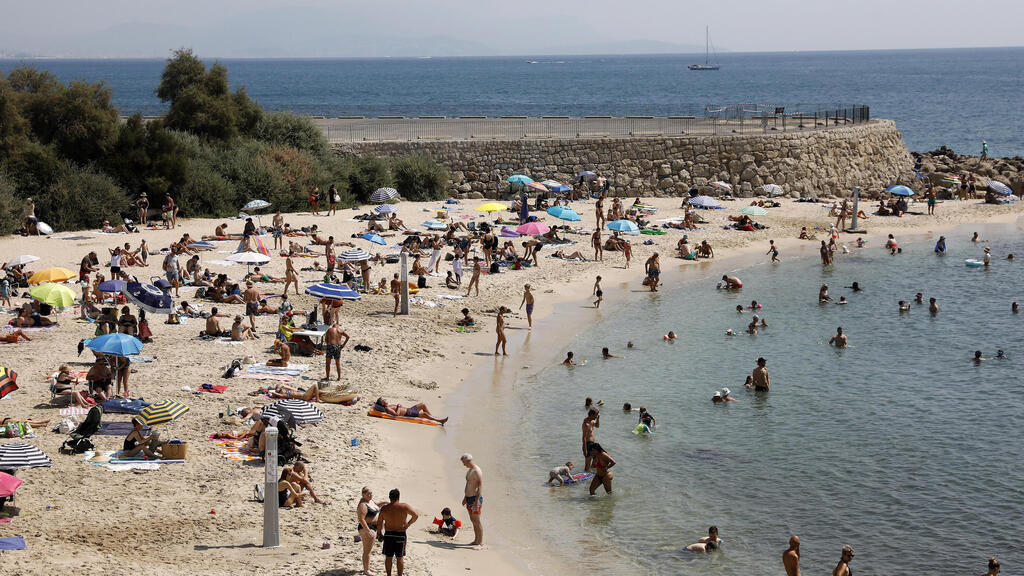Forest fires in the U.S., floods in Korea, and extreme heatwaves in Europe - the weather is extreme all over the world and temperatures continue to reach record-breaking heights and Israel is not spared. This is only the beginning, the experts warn and is another manifestation of the climate crisis caused by greenhouse gas emissions caused by the burning of fossil fuels.
More stories:
In an interview with Ynet, Prof. Adi Wolfson, a researcher at Shamoon College of Engineering’s Green Processes Center, at Be'er Sheva University, who has been writing about the environment for Ynet for over a decade, also said the recent heatwaves plaguing Israelis, were a direct result of the climate crisis.
"The climate crisis is present here and now," he said. "In Israel, specifically, and all around the world, summer after summer, temperature records are being broken. And every year, we act surprised, even though predictions warned this would happen, with outstanding weather events appearing even earlier than expected.”
Prof. Wolfson said the severe heat waves come at a heavy cost. "Last year in Europe, which also experienced heatwaves, an estimated 60,000 deaths were caused by the heat. There are also deaths in Israel due to heatwaves, and still, we are not doing enough to reduce greenhouse gas emissions that cause global warming and climate change, especially in Israel, in order to combat these challenges,” he said.
Wolfson called for immediate action to reduce greenhouse gas emissions. "Predictions indicate this will intensify, but on the other hand, we can and need to act now to slow down this process so that we don't reach a point of no return, where natural processes are already taking their own course, and everything will be out of our control."
He emphasized that this is a critical time to make an environmental change. "Everyone needs to come together and understand that this isn’t just another hot summer. We’re talking about heatwaves that are longer, more frequent, more extreme, and they’re affecting us."
As a timely example, Wolfson pointed to Prime Minister Benjamin Netanyahu, who was hospitalized at Sheba Medical Center on Saturday after suffering dehydration during his Friday visit to the Sea of Galilee. "How can Israel not address its public and say, 'There's a heatwave, this is how you should behave'? How can the country not be ready for the climate crisis? We have a lot to do, and we need to do it today," he said.
"In the coming decades, summers will be hotter, and heatwaves will become more frequent," Israel Meteorological Service director Nir Stav said. The average daily temperature is expected to rise by about half a degree (34 C, 93° F) in the next 20 years, and another degree (35 C. 95° F) in the following 20 years (2040-2060).
And that's not all: the number of hot days per annum, currently around 75 days, will increase to slightly more than 80 days around 2050. A significant increase in the number of very hot days is also expected: from an average of 36 days currently to about 45 days by the mid-century and the number of extreme heat days (with temperatures exceeding 38° C or 100° F) will increase from around 13 days currently to about 20 days on average.
Israel currently experiences about four heatwaves per year, with each lasting an average of four to five days, and temperatures reaching a maximum of 36° C (96° F) and occasionally exceeding 39° C (102° F)
In the next two decades, the number of heatwaves in Israel is expected to rise to an average of five per year. Around the middle of the century, the average heatwaves will rise to six per year, lasting about five days each.
The maximum temperature in these heatwaves is expected to reach an average of 37° C (98° F) with heat peaks exceeding 40° C (104° F)in the next two decades and over 42° C( 107° F) around the middle of the century.
"Heatwaves will increase, not only in summer but likely also during season transition," Stav explained. "The heat will be particularly intense in urban areas, where in addition to climate change, an 'urban heat island' effect will develop in urbanization that results in reduced vegetation, and less airflow. The combination of heatwaves and reduced rainfall may lead to widespread forest fires."
A report by the State Comptroller on Israel's handling of the climate crisis showed minimal to no action on the issue. In recent days, the Comptroller was preparing a follow-up report for an upcoming Climate summit in November. "The Middle East, including Israel, is warming at a higher rate than the global average," explained Mor Gilboa, head of the Zalul organization – an environmentalist NGO operating in Israel.
"Heatwaves will be our daily reality in the coming decades, along with extreme weather events, and drought. The government can and must act, but unfortunately, it’s far from doing what is required of it."
HEAT WAVE LASHES ISRAEL AND EUROPE, TO LAST SEVERAL MORE DAYS
(ILTV)







